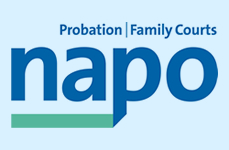Probation Training Update
1. PQF Review Group
2. Probation Qualifications Assurance Board
3. Probation Institute
1. PQF Review Group
Information on the future of training arrangements can always be found on the Skills for Justice website. Until recently, this included a decision tree guiding people through the potential options for future training. Unfortunately, this, together with some other information has now been taken down pending the ‘Narey’ review. However, the website still contains much useful information. http://www.sfjuk.com/
Interim responses from the survey of PSOs reported in June may be accessed here
A matrix of credits required in each access route to probation officer qualification is being developed for the new qualification.
A Communications strategy has been developed.
The requirements from Higher Education have been defined and the Invitation to Tender (ITT) has been prepared and was due to go out at the beginning of this month, but this has now been held up by the ‘Narey’ review.
The National Occupational Standards review continues and is on track.
It probably isn’t sensible to provide further detail on any of the above until we know more about the ‘Narey’ review as this may have a bearing on the direction of travel. The scheduled September meeting of the PQF Review Group has been cancelled as a consequence of this announcement.
2. Probation Qualifications Assurance Board
This report follows on from the last posting on this issue in May. The last meeting of the Board was on 2nd September when the following points were covered:
The number of resignations/withdrawals from the course were examined. They continue to be very few in number (in the order of 5%) and the Board was satisfied that there was no general cause for concern here. Some exit interviews were considered which provided further reassurance. In respect of resignations, the main reason given was that there was a mismatch between the learners’ expectations of the role and the reality of the job. By way of comparison, the Prison Officer training programme has an attrition rate of about 3 in 10 people leaving during the training period or shortly afterwards.
As reported in May, any necessary decisions on learner progression are considered carefully by a sub-committee of PQAB. This meets once a fortnight and might make decisions to defer or withdraw a learner from the course or grant an extension. They take information from Divisional Training teams (DTMs and PTAs) and if insufficient evidence is provided, decisions are put back. Individual learners are themselves able to make representations and this is done through Divisional Training Managers in the first instance. Reasonable adjustments continue to present significant challenges.
Again, the work of the sub-committee was described to the PQAB and its decision making (not individuals) was considered to be fair and consistent.
Self-assessment Reviews (SARs) for the Higher Education Institutions (HEIs) were also considered as a part of the quality assurance process and found to be satisfactory. For the future, the nature of these reviews is likely to be revised so that they can also incorporate the 'on the job' side of training as well. The latest thematic review report (2013/14) is likely to be made publicly available soon.
An up to date review of equality issues for the PQF is in preparation. 16.2% of entrants onto the three recent cohorts were from a BAME background which compares favourably with national census data. Only 4.5% of places were offered to learners with disabilities. This compares less favourably when set against existing PSOs in employment in the NPS where the figure is 12%. However the most significant area for concern is the gender imbalance. Only 17% of those offered a place on the PQF in 2014/15 were men. 74.6% of the NPS workforce are women.
The problems highlighted in the May report remain in some areas though to a lessening extent. It remains of concern that there are still some learners in all three cohorts on whom vetting has still not been completed. A significant number of learners were given conditional (subject to satisfactory vetting) contracts to enable them to start the course. There was pressure to do this because of the numbers required and the speed with which these cohorts were put in place. Generally speaking, conditional contracts like this are not a good idea and can be problematical.
3. Probation Institute
Since March, a small group within the Institute has been working on a Professional Development Framework Model. This work complements the review of the PQF. The CRCs, NPS, HEIs, Skills for Justice and Napo are now all represented on this group. This Project Group is supported in its work by a wider reference group.
Work on the Framework Model is now nearing completion and a draft version can be accessed by Institute members via the Institute website.
The purpose of the project is to develop a framework aligned with the Probation Register (also operated by the Institute), advising on job families, standards of competence, accredited learning, qualifications and recognised CPD.
The group is also developing an Endorsement Scheme intended to offer an opportunity for training providers to promote their products.
The new world of Probation, involving multiple providers both of Probation services and indeed training, has generated a whole new set of issues and challenges. Not least of these is to provide some structure, guidance and even regulation regarding suitable and appropriate training provision. This is of particular interest to CRCs and their staff where Secretary of State guidance is non-existent.
Mike McClelland
Napo National Official
September 2015
